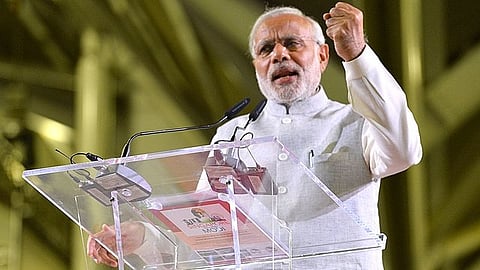Prime Minister Narendra Modi on Tuesday virtually inaugurated a major digital healthcare programme for the Surat Municipal Corporation (SMC), setting the city as Gujarat's benchmark in centralised healthcare technology.
Gujarat's first centralised network of health is operational.
The Hospital Management and Information System (HMIS) is a milestone for Surat, making SMC the first municipal corporation to roll out such a sophisticated digital healthcare infrastructure in Gujarat. It's a cutting-edge system that integrates all the healthcare facilities coming under the civic body into a seamless network, promising to revolutionise patient care delivery.
Seamless digital integration in 80 health centres
SMC boldly ventured into the digital health era by connecting all 80 civic health centres and hospitals via this cutting-edge platform. The system does away with the conventional paper-based system, replacing it with holding vast patient treatment records in digital form to enhance accessibility and efficiency.
Streamlined Patient Registration and Records Management
Patients transformed from being passive recipients of healthcare services to more engaged individuals, the initiation of the new system. Whereby digital OPD and IPD registration have replaced tiresome manual procedures, the electronic health record ensures continuity of care across all facilities. The harmonized system does not allow for duplication of data and provides continuous care to patients in the healthcare system.
Advanced Medical Imaging and Queue Management
One of the most important features of the HMIS is the Picture Archival and Communication System (PACS), which stores and maintains radiological images from multiple sources, such as sonography and X-ray studies, digitally. Also, SMIMER Hospital now enjoys a Queue Management System (QMS) with digital health tokens for patients that cut down waiting times dramatically and enhance the delivery of services.


